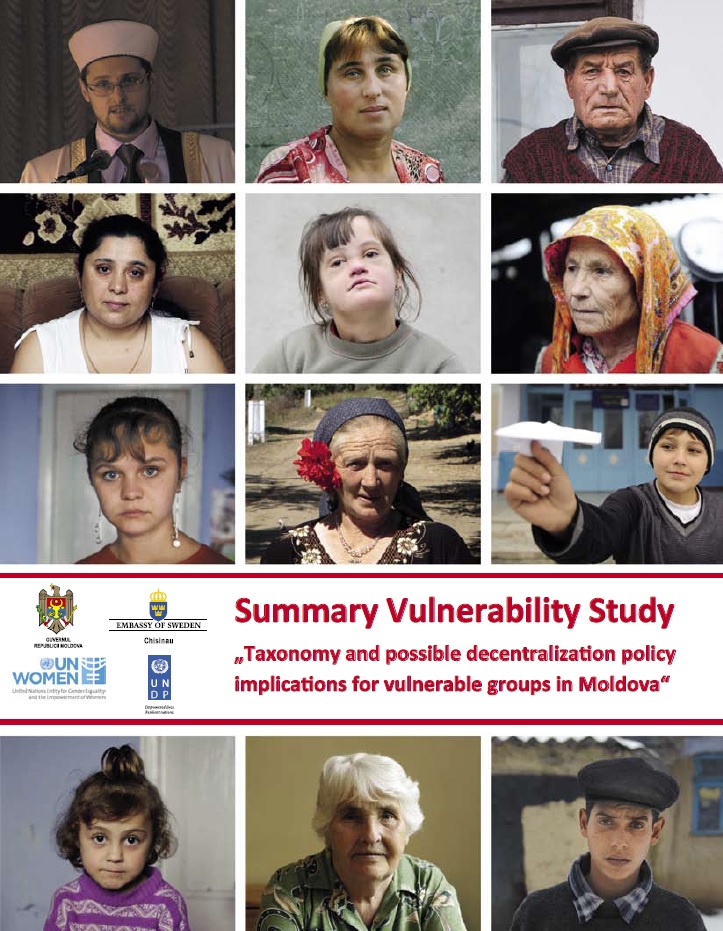
Vulnerability Study, Taxonomy and possible decentralization policy implications for vulnerable groups in Moldova

This paper is an account of vulnerable groups in Moldova and an expert assessment of potential positive and negative consequences arising from decentralization for them.
Using practical and pragmatic vulnerability criteria, it develops a classification of Moldova's vulnerable groups. Researched by thorough review of reliable secondary sources, the paper presents evidence from national and international sources to document the groups' factual existence, their current situation and problems. It discusses why each group is identified as vulnerable and reviews possible underlying causes for their vulnerability. The paper then analyzes current policies and details their negative effects on the vulnerable.
The paper also provides an account of good practices and policies and detailed recommendations that could be taken as decentralization continues.